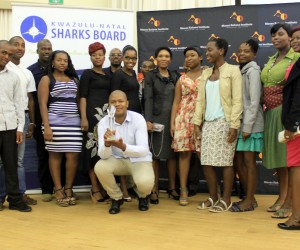Key to government strategy has been the identification of scarce and critical skills and the building of links into the provider market for offering these skills. Skills development is the sole purpose for the existence of Moses Kotane Institute (MKI).
Delivering to the heart of this mission, MKI is the only organisation in South Africa whose focus is on promoting, developing and implementing STEM (Science, Technology, Engineering and Mathematics) programs in an effort to grow the pool of individuals able to provide scarce skills that are sorely needed for the country to achieve its nation building agenda.
MKI’s goals, objectives and priorities are aimed at promoting opportunities that enhance access to jobs and the identified scarce skills through the discourse of STEM guided by the principles of innovation, access, efficiency and sustainability.
STEM fields have been identified as the critical foundation for access for preciously disadvantaged learners and students into technical fields such as aviation, aeronautics, maritime, naval architecture, architecture, bio fuels, agro-processing and many others.
Over the past five years, extensive investment has been made in developing and delivering quality STEM programs to learners, educators and schools in both rural and urban areas.
Over the next three years, MKI has partnered with TETA to implement four programmes in specific areas within the transport sector. The impact will be directly felt in scarce skills development and job creation. The value of this partnership is R18m. More partnerships are in the pipeline.
REVIEW
Over the past five years of its existence, Moses Kotane Institute (MKI) has turbo-propelled the lives of hundreds of rural learners with potential into tertiary education scholars with promising professional futures in various South African industry sectors.
With a focus on facilitating specific interventions in rural schools in the subjects of science, technology, engineering and mathematics (STEM), MKI’s interventions are designed to enhance proficiency in these subjects and thereby directly help to reduce the skills shortage in South Africa.
In practical terms, this involves capacitating learners and teachers through added value tuition in the specific subjects. Steadily, MKI is making an impact in the KwaZulu Natal region in bridging the gap in educational opportunities that was created by apartheid. In the same period that the World Economic Forum Global Competitiveness Report ranked South Africa second to last globally in science education, many of MKI’s graduates have performed with distinction (2013). For instance, 100% of the 97 students who were taken through MKI’s Adopt-A-School Programme at Adams College have passed, 85% of those with exemption and delivering 38 As in mathematics, 40 As in physics and 44 As in Accounting. The school is now ranked sixth in the province’s Top 10. MKI is proud of the progress made and looks forward to announcing more strides and achievements throughout the course of the coming year.
Over the past year, MKI has redefined the delivery of its mandate through five key programmes:
- Academic Development and Continuous Professional Improvement, which include matric interventions that are aimed at increasing the pass rates in maths, science and technology
- Engineering and Applied science sectoral development, which is aimed at accessing STEM related fields at higher education institutions.
- Information and Communication technology, which facilitates education that will empower unemployed youth in areas of need with IT and communication technology skills.
- Leadership and Indigenous knowledge systems, which facilitates education that will empower existing parliamentarians, members of KZN legislature and local government with leadership skills.
- Maritime technology research and development, which will assist in creating recognised research and development centres.
Moses Kotane Institute is changing the face of South Africa in the STEM fields and we have taken it on as our duty to ensure that all those who have no hope are given a life changing lift through our programmes by ensuring that STEM education is prioritised as an enabler for more productive futures for the youth of South Africa. MKI’s values of Ubuntu, people-orientedness, egalitarianism, political rectitude, world-class standards, responsibility, accountability and sustainability are what it will take to ensure that positive change becomes a reality in our society and in South Africa as a whole.
OUTLOOK
MKI’s focus in its five-year plan is to grow even further into a fully-fledged research and development centre. From 2014/15, MKI will be introducing maritime studies as a new area of focus. The oganisation’s staff complement has also been grown from five to 17 as the organisation seeks to raise internal capacity to open up the doors of higher education to larger numbers of deserving but financially constrained rural learners.
Our drive towards making South Africa globally competitive has also led to the Institute partnering with international industry leaders such as global electronics giant, Samsung. The recent signing of a Memorandum of Understanding with Transport Education and Training (TETA) also guarantees expansion of programme delivery within the Maritime sector. Additionally, MKI has secured maritime expertise seconded from The Department of Transport to run the Maritime Programme at no cost to the institute.
We, as Moses Kotane Institute, are committed to fulfilling our mandate by continuing to run solidly developed and well structured programmes that support rural schools to produce skilled graduates who can go on to higher education and career opportunities which will prepare them to add value to their communities in tangible ways as well as adequately and ably compete on the global stage.






